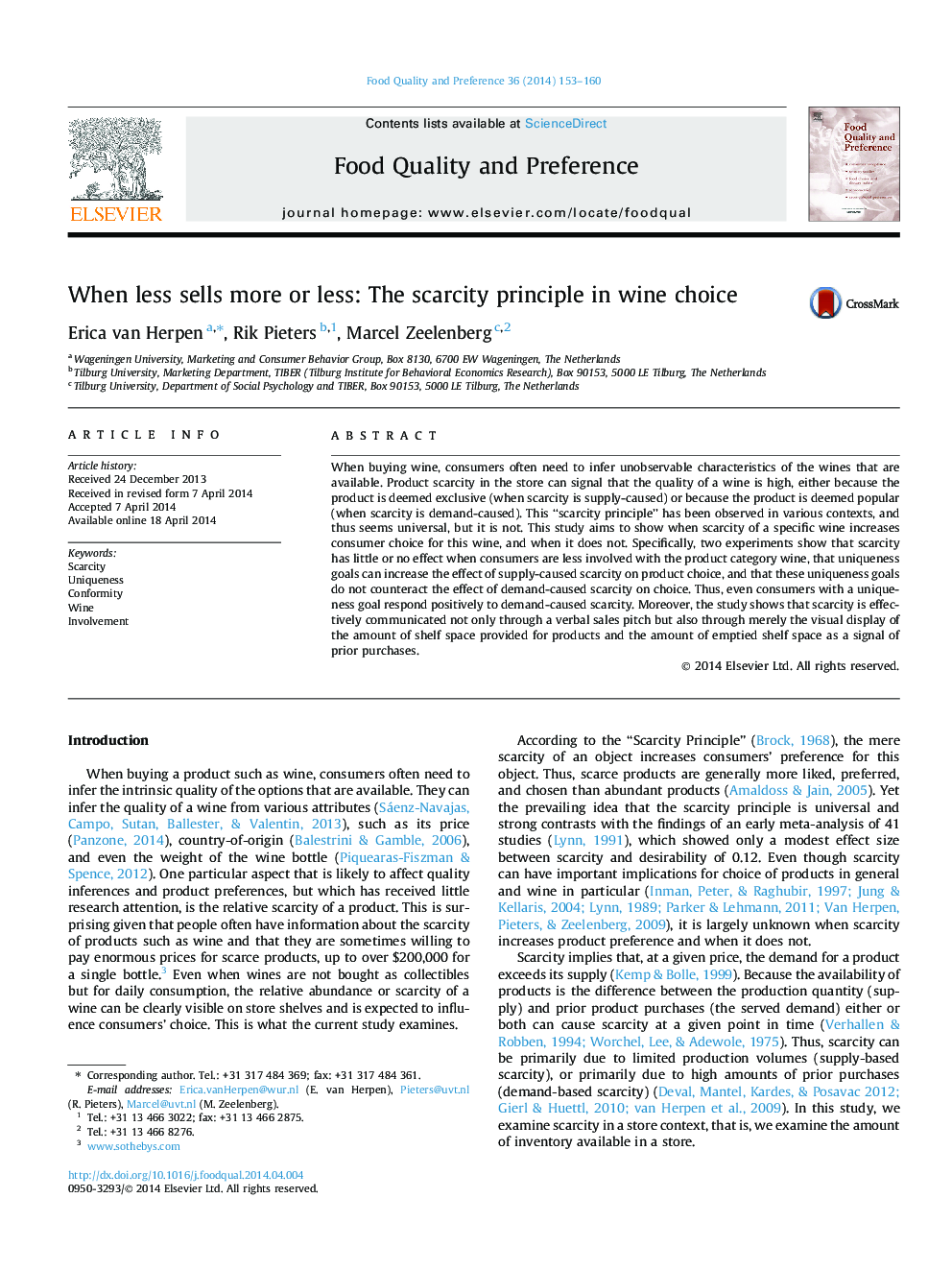| Article ID | Journal | Published Year | Pages | File Type |
|---|---|---|---|---|
| 4317155 | Food Quality and Preference | 2014 | 8 Pages |
•People who strive for uniqueness prefer wines that are scarce due to limited supply.•Having a uniqueness goal does not decrease people’s choice of demand-scarce wines.•Product involvement is a necessary condition for scarcity effects due to limited supply to occur.•Scenario-based experiments show that amount of shelf space and emptied shelf space suffice as scarcity signals.
When buying wine, consumers often need to infer unobservable characteristics of the wines that are available. Product scarcity in the store can signal that the quality of a wine is high, either because the product is deemed exclusive (when scarcity is supply-caused) or because the product is deemed popular (when scarcity is demand-caused). This “scarcity principle” has been observed in various contexts, and thus seems universal, but it is not. This study aims to show when scarcity of a specific wine increases consumer choice for this wine, and when it does not. Specifically, two experiments show that scarcity has little or no effect when consumers are less involved with the product category wine, that uniqueness goals can increase the effect of supply-caused scarcity on product choice, and that these uniqueness goals do not counteract the effect of demand-caused scarcity on choice. Thus, even consumers with a uniqueness goal respond positively to demand-caused scarcity. Moreover, the study shows that scarcity is effectively communicated not only through a verbal sales pitch but also through merely the visual display of the amount of shelf space provided for products and the amount of emptied shelf space as a signal of prior purchases.
